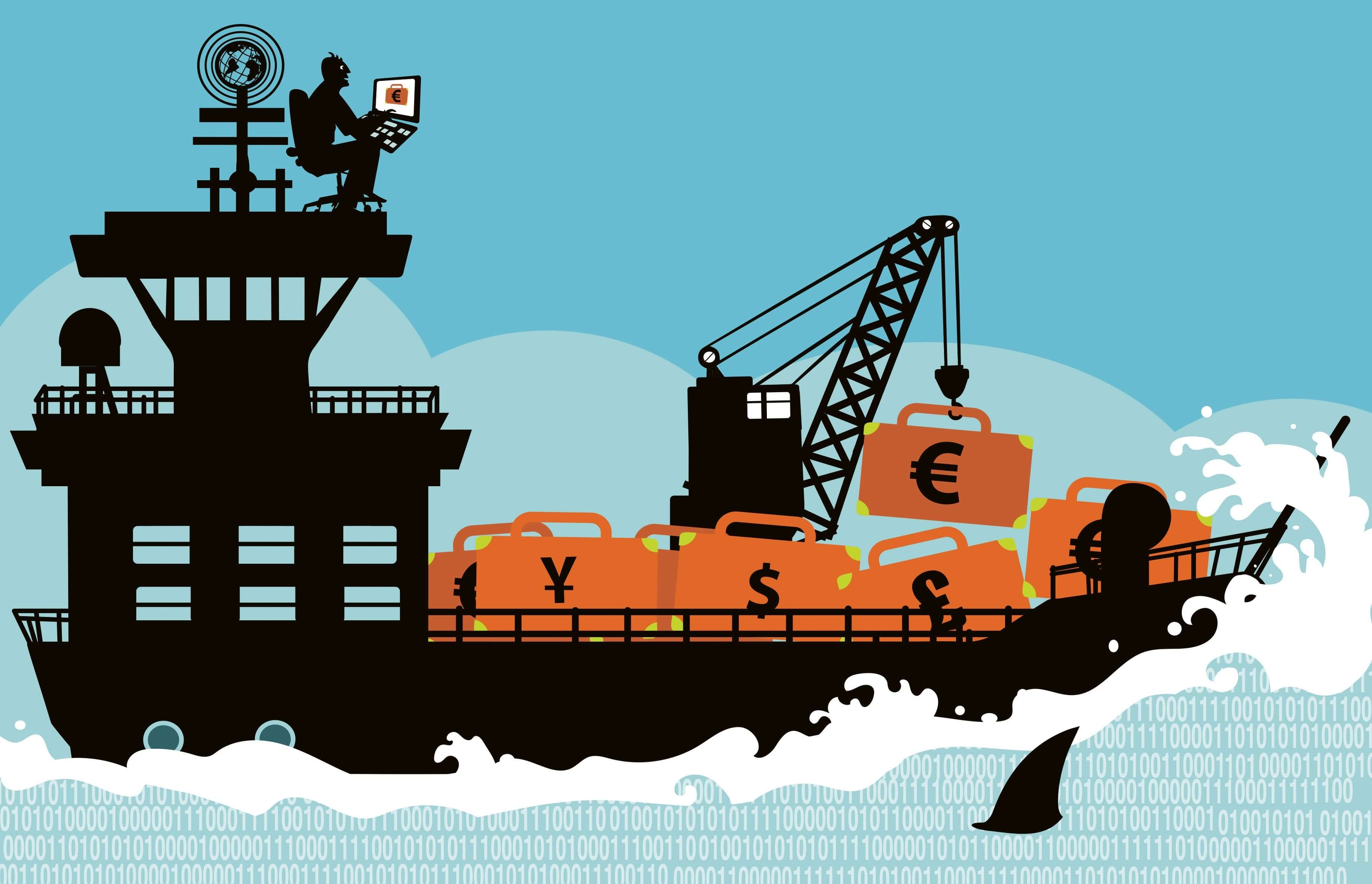Digital Reality Calls for More Intelligent Banking

Author: Angelo van Leemput | Image: Yvonne Kroese | 11-04-2023
The banking world has always been one of the biggest investors and forerunners in digitization. This is not surprising; in a service industry where information plays a central role, there is a good deal to digitize.
‘To remain relevant, banks need to increase their added value with more intelligent services,’ says Deloitte partner Marijn Struben.
This large-scale digitization effort has brought many benefits to banks and customers in recent decades. Banks could bid farewell to branches that were visited less and less and improve the efficiency of service. Customers, for their part, were able to do their online banking in real time and later switched en masse to the app. Banking had become simpler and more insightful for all parties.
Catching up is necessary
With the introduction of Internet banking and apps, the most important digital steps for banks seemed to have been made. Since then, however, the banking world has been overtaken by other sectors (governments, media companies, gaming industry) in terms of technology, investment, and innovation. This in part contributed to major innovations in areas such as the cloud, massive data processing, artificial intelligence, and digital channels. A new catch-up by banks is necessary, especially considering changing customer and societal demands.
Deloitte partner Bart-Jan Schenkels: ‘ChatGPT demonstrates the power of artificial intelligence (ai) to the public. International forerunners in the financial sector have been using similar technologies for customer interaction for several years, for example in chatbots. With the enormous strides that ai is making, consumers are seeing an advance in service that they will also come to expect from their banks.’
Trend 1: Consumers want more (and more)
Consumers have become accustomed to the digital interaction they experience in other sectors and want more from the bank than just the ability to check their balance or an overview of the latest transactions. Customers expect a bank that thinks with them and is there when convenient. When making a purchase in an online store, for example, the bank will need to be present online. Primarily to pay, but also to offer additional services. Think of buy now, pay later or other services useful around a payment transaction.
At the same time, customers will not only be looking for even more payment convenience, but they will also increasingly expect advice on financial health. More and more customers expect the bank to partner with them and provide them with honest and personal financial advice at important times in their lives. How much can I offer on a house I like? How can I pay for my children's studies later? Knowing a customer goes beyond approving and handling transactions.
According to Marijn Struben, the rapid rise of buy now, pay later is at odds with the financial health of young people. On the one hand, banks want to facilitate as much ease of payment as possible; on the other, they need to keep an eye on the customer's financial health.
Trend 2: The business market wants more (and more)
The business market has similar demands. There, too, customers - from the small self-employed to corporates - want customized services. The small independent wants advice on how to grow and manage cash flow, such as whether there are sufficient funds to meet the next VAT payment. Small and medium-sized businesses are interested in advice on growth opportunities and in linking accounting and banking data. Large companies are looking for flexibility. For example, they want to be able to take out transaction-based loans. A question banks increasingly encounter is: can you finance my invoice? Since the financial crisis, alternative financiers experienced extremely fast growth, according to Bart-Jan Schenkels. This trend is visible in all market segments, from the smallest entrepreneurs to specialized large business financing. If banks cannot meet these and other demands, they risk losing business customers: after all, they will be able to find alternative financiers. The business market also - like the consumer market - expects the bank to be where it is. For example, an entrepreneur wants to be able to get a loan on the e-commerce platform where it sells its products and services.
Trend 3: The government wants more (and more)
The government, and society at large are exacting, also around sustainability, more and more from banks, says Marijn Struben. The government and regulators are placing onerous demands on banks as gatekeepers of societal interests. Risk management and regulation have become increasingly important after the 2008 banking crisis, and it does not appear as though this importance will diminish.
Legislation and regulations require and demand a social role from banks. Banks must already comply with strict legislation to prevent and detect money laundering and terrorist financing. In the near future the new CESOP legislation to prevent VAT fraud will be added too, for example.
In search of a more intelligent bank
In short, consumers, business customers and the government are all knocking on the bank's door. They all have a clear question, and they all expect a customized (real-time) answer. They are all looking for a more intelligent bank. Banks will have to respond accordingly. Fortunately, this is possible as there are plenty of new technological innovations available to meet these new challenges.
Of course, there are also plenty of obstacles that make an ongoing digital transition difficult or complicated. For example, at virtually all banks, core digital systems were built in the 1980s or 1990s. In the decades since, new layers have been built around these systems. New technology often clashes with the old systems and associated structures; why revamp something that functions every day? Another obstacle is that banks are tied to running the business while changing the business. A bank cannot request a time out for sweeping alterations. Every single day there are enormous amounts of information and transactions to process. Banks cannot afford to make mistakes. How do you replace the ship's engine while it needs to keep sailing and while also dealing with changing its course? That is the challenge of the bank anno today.
Strategic choices
The digital actuality is complex and thus requires some key strategic choices, the right execution force and people at the top who recognize and acknowledge the need for change and improvement. The actuality requires a clear vision, including on ethical issues and willingness to embrace new technologies and innovations. In doing so, abstract propositions and lengthy change processes that often underestimate complexity and are already obsolete at the point of realization are of no use. Banks will have to look for the right people with the right digital skills - not only ’in operation’ talent, but people with the much-needed ’transformation expertise’ and thorough knowledge of the possibilities of the most modern technological developments.
Marijn Struben and Bart-Jan Schenkels conclude: the complexity of digitalization of banks will certainly not diminish in the near future, changing demands from the market and from key stakeholders like the government will continue to be a driving force to constantly innovate and look for opportunities to better position banks for the future through technological innovations.
Bart-Jan Schenkels and Marijn Struben are partners at Deloitte. This article was published in Management Scope 04 2023.

